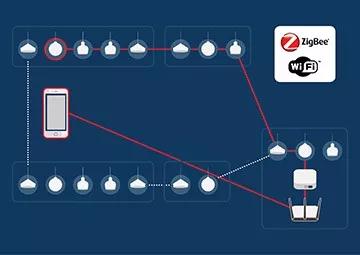Dim stupid people become silly? American research says ...
According to a study published in the journal "Hippocampus," long-term exposure to dim conditions can alter the structure of the brain, impairing our memory and learning ability.
Researchers at Michigan State University, led by Dr. Lily Yan, studied the brains of Arvicanthis niloticus after being exposed to dim light for four weeks.
The results showed that important brain areas of learning and memory in their brains lost approximately 30% of their ability and did poorly on the space tasks they had previously trained on.
On the other hand, animals exposed to bright light showed a clear improvement in their spatial tasks.
In addition, these grass hamsters, previously exposed to dim light, regained their brain capacity and performance completely after being exposed to light for four weeks.
Associate Professor Antonio Nunez said: "When we exposed rats to dim light, mimicking cloudy winter in the Midwest or typical indoor lighting, these animals showed signs of learning in space."
"It's like people can not find a car in a busy parking lot after spending a few hours in a shopping mall or in a movie theater."
"Continued exposure to dim light can result in a significant reduction of a substance called brain-derived neurotrophic factor and dendrites (or neurons that communicate with each other)."
"As the number of neuronal connections decreases, learning and memory are diminished - in other words, dim lights make people silly."
Interestingly, the light does not directly affect the hippocampus. (Note: The hippocampus is located between the thalamic and medial temporal lobes of the brain and is primarily responsible for functions such as memory transfer and orientation for long-term memory.) This means that light travels through the eye first acting on the brain Other parts of the.
Lily Yan, PhD, said: "We are studying a potential rodent brain, that is, a group of neurons in the hypothalamus, these neurons produce a peptide called orexin peptide, this peptide will affect a lot Brain function. "
"One of our major research questions is: If the orexin was given to mice that had previously been exposed to dim light, could their brains recover without having to be exposed again to light?"
This project may affect the elderly, patients with glaucoma, retinal degeneration or cognitive impairment.
Lily Yan, PhD, said: "For those who do not receive too much light in patients with eye diseases, we can directly manipulate this group of brain neurons, bypassing the eyes, providing them with the same benefits of light?
"Another possibility is to improve cognitive function in the elderly and in patients with neurological disorders.Whether we can help them recover from the damage or prevent them from falling further?"
link by :www.likeyli.com
Researchers at Michigan State University, led by Dr. Lily Yan, studied the brains of Arvicanthis niloticus after being exposed to dim light for four weeks.
The results showed that important brain areas of learning and memory in their brains lost approximately 30% of their ability and did poorly on the space tasks they had previously trained on.
On the other hand, animals exposed to bright light showed a clear improvement in their spatial tasks.
In addition, these grass hamsters, previously exposed to dim light, regained their brain capacity and performance completely after being exposed to light for four weeks.
Associate Professor Antonio Nunez said: "When we exposed rats to dim light, mimicking cloudy winter in the Midwest or typical indoor lighting, these animals showed signs of learning in space."
"It's like people can not find a car in a busy parking lot after spending a few hours in a shopping mall or in a movie theater."
"Continued exposure to dim light can result in a significant reduction of a substance called brain-derived neurotrophic factor and dendrites (or neurons that communicate with each other)."
"As the number of neuronal connections decreases, learning and memory are diminished - in other words, dim lights make people silly."
Interestingly, the light does not directly affect the hippocampus. (Note: The hippocampus is located between the thalamic and medial temporal lobes of the brain and is primarily responsible for functions such as memory transfer and orientation for long-term memory.) This means that light travels through the eye first acting on the brain Other parts of the.
Lily Yan, PhD, said: "We are studying a potential rodent brain, that is, a group of neurons in the hypothalamus, these neurons produce a peptide called orexin peptide, this peptide will affect a lot Brain function. "
"One of our major research questions is: If the orexin was given to mice that had previously been exposed to dim light, could their brains recover without having to be exposed again to light?"
This project may affect the elderly, patients with glaucoma, retinal degeneration or cognitive impairment.
Lily Yan, PhD, said: "For those who do not receive too much light in patients with eye diseases, we can directly manipulate this group of brain neurons, bypassing the eyes, providing them with the same benefits of light?
"Another possibility is to improve cognitive function in the elderly and in patients with neurological disorders.Whether we can help them recover from the damage or prevent them from falling further?"
link by :www.likeyli.com


评论
发表评论